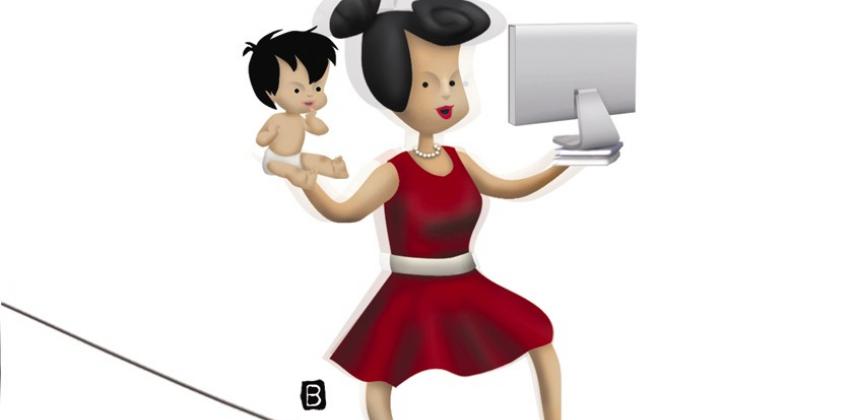Under Hong Kong law, pregnant women are entitled to 10 weeks' maternity leave if they work under a continuous contract of employment, which is when they have worked continuously for the same employer for at least four weeks and for at least 18 hours each week.
Employees who have worked for at least 40 weeks immediately before starting maternity leave are entitled to paid leave. Those who have worked for less than 40 weeks are also entitled to 10 weeks' leave - but it won't be paid.
Maternity pay is four-fifths of the average daily wage, paid on the usual payday. Pregnant employees are allowed sick leave, based on four-fifths of the average daily pay, to attend pregnancy-related medical appointments.
Winnie Ng, consultant and head of employment practice for Greater China at Minter Ellison Lawyers, says maternity leave in Hong Kong is short compared with other developed markets such as Australia, Singapore and Britain (see accompanying box).
Still, Hong Kong provides strong protection against dismissal of pregnant employees. "Under the Employment Ordinance, an employer commits a criminal offence if it dismisses an employee - other than through summary dismissal - after the employee has served a notice of pregnancy," Ng says.
An employer who contravenes this can be liable to prosecution and, on conviction, fined HK$100,000, she adds. The employer would also be required to pay the employee's wages in lieu of notice, a further sum equivalent to one month's wages as compensation, and 10-weeks' maternity leave pay. Pregnant workers who feel they have been discriminated against because of their pregnancy are also protected by the Sex Discrimination Ordinance.
"It would be unlawful for an employer to treat an employee less favourably because of that employee's pregnancy," Ng says. "This protection extends to the period after the employee has returned to work from her maternity leave."
Nonetheless, Hong Kong women are often deterred from working after childbirth because of work pressures and a lack of family-friendly policies, says Su-mei Thompson, CEO of The Women's Foundation. She cites a 2009 Women's Commission report, which found that 68.9 per cent of women were in the workforce compared with only 46.3 per cent of married women.
"Causal factors are unclear but our own research would suggest that the gap is due to women doubting their ability to take care of their families and to be able to perform well at work," she says. "Many women [also] find it hard to advance in the workplace due to discrimination and prejudice and a lack of family-friendly policies."
Ng says the Equal Opportunities Commission (EOC) has been receiving more pregnancy-related complaints. "This shows that pregnant employees are now becoming more aware of their statutory rights in the workplace and that they are more willing to file complaints with the EOC when faced with discrimination," Ng says.
According to the EOC, the number of pregnancy-related complaints has increased from 79 in 2005 to 150 last year.
Robin Bishop, chief operating officer of Community Business, says many Hong Kong employees would leave their jobs if offered a post with a better work-life balance. "Our latest research revealed that nearly 40 per cent of employees are looking to leave their current role for one that offers them a more balanced approach to work-life balance."
Comparisons
- Australia's Paid Parental Leave Scheme came into force on January 1 this year, and entitles either parent to a paid leave of AU$569.90 (HK$4,392.54) per week for up to18 weeks, to be taken any time during the first 12 months after birth or adoption.
- In Britain, all pregnant employees are entitled to 52 weeks' maternity leave. Those working for the same employer for at least 26 weeks by the end of the 15th week before the baby is due are paid 90 per cent of their wages for six weeks, and up to £123.06 (HK1,519.18) for another 33 weeks.
- Employed mothers-to-be in Singapore are entitled to 16 weeks' paid maternity leave, the first eight weeks of which are paid at the full salary rate while the rest is unpaid.


